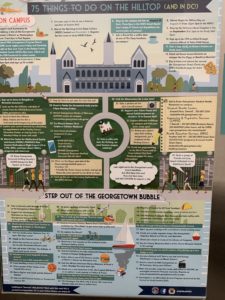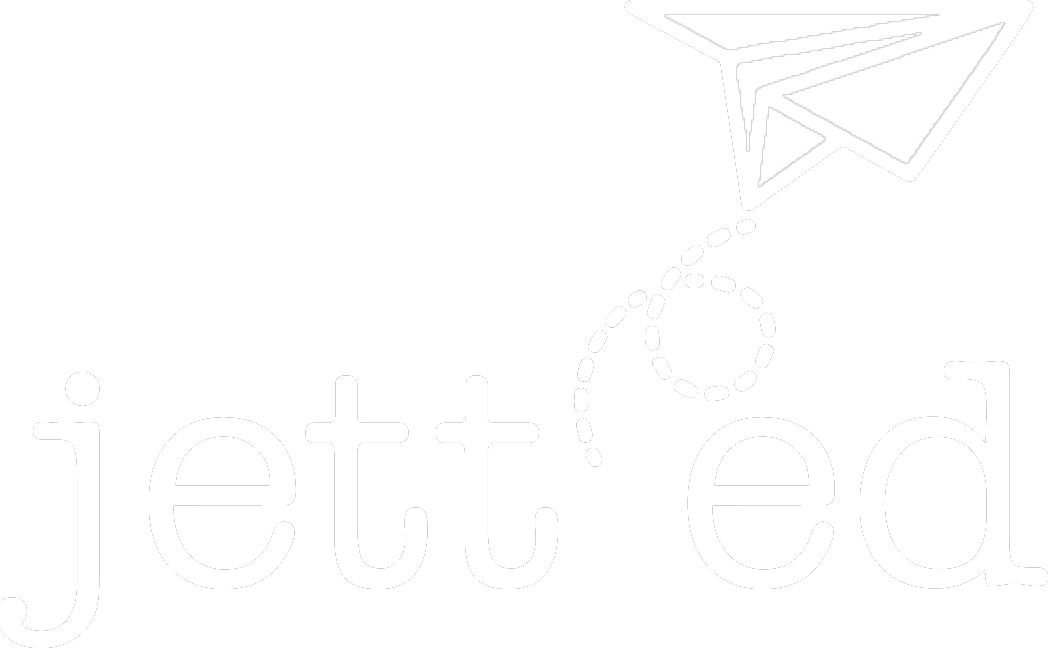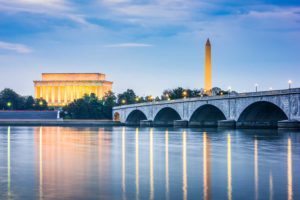Washington D.C. College Visit
DC
Part of my job is visiting schools and cities so I can share my impressions and feedback with students. I made a whirlwind visit to Washington, D.C. earlier this month and visited a handful of schools. As the capital of the country, there is so much going on in D.C. It’s a great place for students who want to be in an urban environment, who value diversity and who are interested in internships and/or work experiences. All three of the schools below are for more academic/serious students. D.C. is a bike friendly city and has good public transit options. Oh, and people were incredibly nice and friendly.
If you are taking your student to visit schools, I have a few things I recommend:
• Make it fun; these trips are memorable for both of you. Find other things besides visiting a campus that you both enjoy.
• Talk to students; most kids (if they like the school they are attending) will be eager to share information with you.
• Check out the student center, coffee shop or place where students are hanging out. How do they seem, stressed out? Casual? Fun? You can get a sense of a place by how the students behave when they are not in class.
• If you are a junior or senior make sure you are taking a tour. The schools keep track of this and it can have an impact on your admissions outcome.
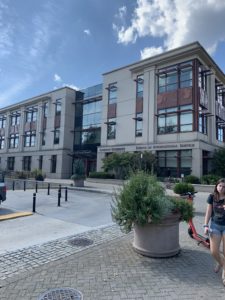
American University
American University is located in Northwest Washington in a suburban feeling part of D.C. There are 7,500 undergrads and the most popular majors are: International relations, criminal justice, communications, politics & government and business. The campus is 90 acres, American has a diverse student body and 89% of students have internships during their time @ American.
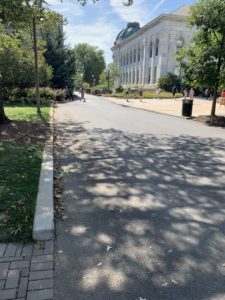
The school is know for its personalized curriculum and international opportunities to study abroad. “Faculty at AU are both world-class academics and serious practitioners. Our professors teach, mentor, and invest in the success of every student.”Our curriculum challenges students to combine serious theoretical study with meaningful real-world learning experiences.
Students were friendly and outgoing; I was asked three times if I needed directions when I was walking around. The vibe on campus was serious but one of engagement. There’s definitely a positive energy around school.
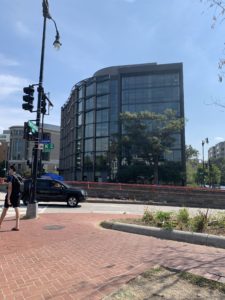
George Washington University
GW has a long history in the capital, it was chartered by an act of congress in 1821. The school doesn’t really have a campus, it’s close to white house, and has “3 campuses in D.C.”. GW is very urban-there is no real physical campus and its in the heart of the city. There are 11,000 undergrads, over 70 majors and a large number of of international students. The school has DI athletics and 69% of undergrads had internships or co-ops. GW makes a point of connecting academia to policy and the workplace; service and real-world engagement are a major part of GW’s student culture. Fun fact: a large percentage of peace-corps and teach for America volunteers come from GW. If service and volunteering is appealing to you; this could be a good fit.
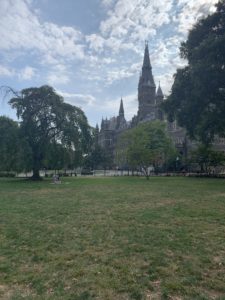
Georgetown University
Georgetown, one of the most selective schools in the country, gives students the opportunity to be in a beautiful campus setting while still being in a vibrant city. Hoyas are very proud of their DI athletic teams and the school has a strong connection to Washington. There are 7,000 undergrads and Georgetown has four separate schools/colleges:
• Georgetown College
• The School of Nursing & Health Studies
• The Walsh School of Foreign Service
• The McDonough School of Business.
It’s a great college if you are interested in international relations. The academics at Georgetown are rigorous, not surprising. It’s definitely a school for the intellectually curious who have an eye towards global issues. The school has a Jesuit foundation and is focused on educating the whole person. They do have a theology requirement; from their website they describe their philosophy here, “Shaped by centuries of Jesuit education around the globe, our culture embraces the changing times while staying true to core values – engaging your intellect, helping you grow ethically and spiritually, exchanging ideas freely and building a more just world.”
